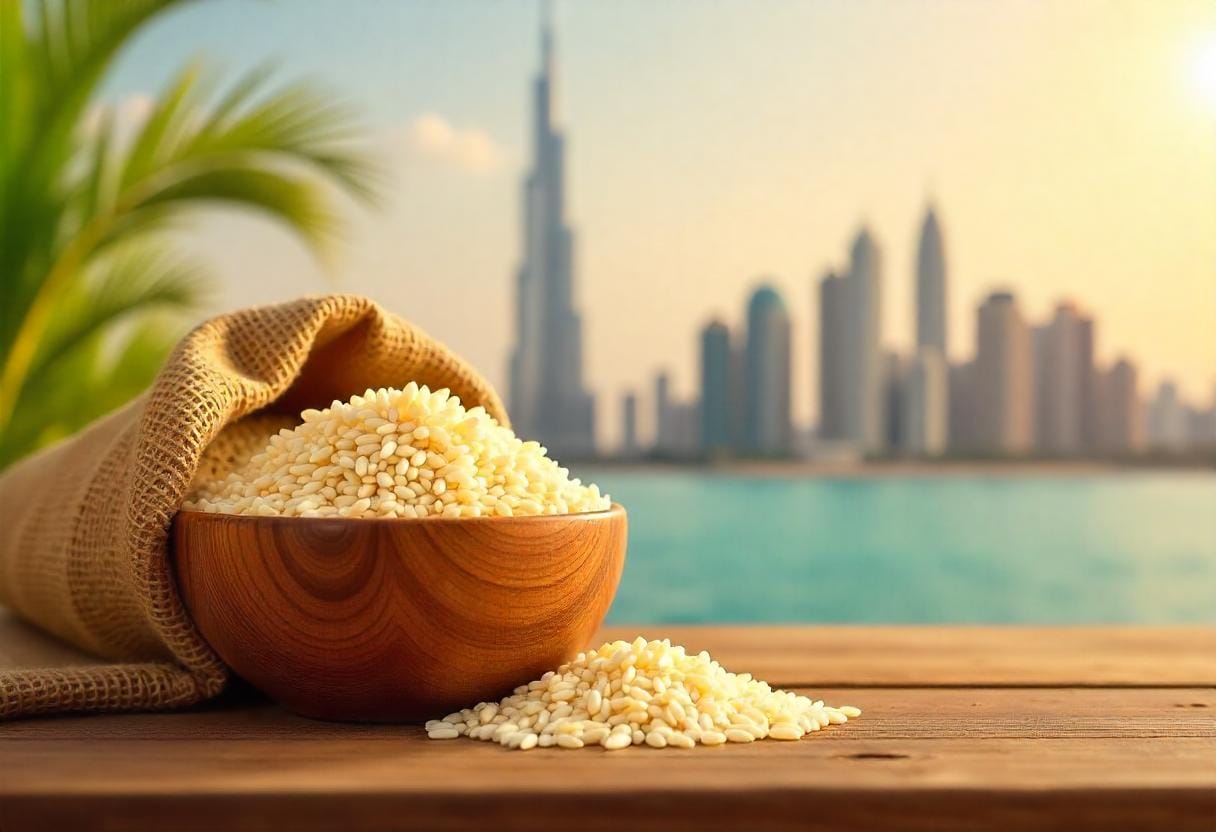When it comes to the rice industry, packaging isn’t just about protection — it’s about positioning. Whether you’re launching a new rice brand, supplying to wholesalers, or exporting premium Basmati rice, choosing the right packaging format is key to business success.
Two primary packaging options dominate the market: bulk packaging and retail packaging. Each comes with distinct advantages depending on your target market, sales channel, and business goals.
So, how do you decide which is right for your rice business? Let’s break it down.
1. What is Bulk Packaging?
Bulk packaging refers to larger sack sizes commonly ranging from 20kg to 50kg. These are typically used for wholesale distribution, food service sectors (hotels, restaurants), or institutional buyers.
Common Bulk Options:
• 25kg, 30kg, 40kg, 50kg sacks
• Materials: PP woven bags, jute bags, BOPP laminated sacks
• Often printed with basic branding or buyer’s private label
Best For:
• Wholesale rice in India distributors
• HORECA (Hotels, Restaurants, Catering) buyers
• Government tenders and relief supply programs
• B2B export orders such as FOB basmati rice in Saudi and other Gulf countries
2. What is Retail Packaging?
Retail packaging includes smaller packs, usually between 500g to 10kg, and is designed for direct consumer sales in supermarkets or online stores.
Popular Retail Sizes:
• 1kg, 2kg, 5kg, 10kg pouches or boxes
• Materials: laminated pouches, zip-lock bags, vacuum packs
• Often includes eye-catching branding, nutrition info, QR codes, and barcodes
Best For:
• Basmati rice for supermarkets in India
• Online grocery platforms and retail chains
• Brand-focused businesses looking to build a loyal customer base using Private label Basmati rice exporter in India services
3. Key Differences: Bulk vs Retail Packaging
| Feature | Bulk Packaging | Retail Packaging |
|---|---|---|
| Target Buyer | Wholesalers, Horeca, exporters | Supermarkets, households, online shoppers |
| Pack Sizes | 20kg–50kg | 500g–10kg |
| Brand Visibility | Low to moderate | High – consumer-focused |
| Cost per Unit | Lower (economies of scale) | Higher (custom branding, smaller units) |
| Storage & Handling | Requires more space, heavier loads | Easier to store, shelf-friendly |
| Profit Margin | Lower per unit, high volume | Higher per unit, brand-driven margin |
4. How to Choose What’s Right for You
Your ideal packaging format depends on your business model and market. Ask yourself:
Are You Targeting Retail or B2B?
If your goal is to sell to end consumers through stores or online, retail packaging with attractive design is essential. If you’re supplying restaurants or institutional buyers, bulk is more practical and cost-effective.
What’s Your Branding Strategy?
Retail packaging allows you to build a visible brand with eye-catching labels, QR codes, and unique value propositions. Bulk buyers are less concerned with design and more focused on cost, quality, and consistency. Consider Custom packaging rice exporters in India to elevate your retail brand.
What Are the Logistics and Storage Constraints?
Bulk packaging can be cheaper per kg but harder to handle, especially for small businesses or outlets with limited storage. Retail packaging, on the other hand, is shelf-ready and requires less logistical overhead.
5. The Best of Both Worlds: Offer Both Formats
Many successful rice exporters and brand owners offer both bulk and retail packaging to cater to different customer segments. For example:
• Exporters can ship in bulk to wholesale clients in Saudi Arabia or the UK, while also offering 1kg and 5kg packs for branded retail sales.
• Distributors may purchase in bulk and repackage into smaller consumer units locally.
• Private label clients might request both formats under their own brand name using Private label Basmati rice exporter in India.
This dual approach helps maximize reach, diversify revenue, and strengthen your market presence.
Final Thoughts
Choosing between bulk vs retail packaging is not just a logistics decision — it’s a strategic business choice. Your packaging must align with your market, brand goals, and buyer expectations.
At our company, we offer customizable packaging solutions tailored to your market needs — from 50kg bulk sacks for wholesalers to vacuum-sealed 1kg packs for premium retail brands. Contact us today to explore our full range of packaging options, private labeling services, and export support as your trusted Basmati rice supplier in India.



